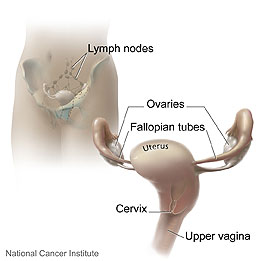The authors from the Centre for Research and Development in Gävle and the Karolinska Institutet, Stockholm, Sweden, studied all 1230 women diagnosed with cervical cancer nationwide between 1999 and 2001.
In the study, which is the first to estimate chances of surviving cervical cancer, both screen-detected cancers (those with an abnormal smear result one to six months before cancer diagnosis) and symptomatic cancers (all remaining cases) were tested. The objective of the paper was to see if the detection of cervical cancer by screening resulted in better prognosis or just resulted in earlier diagnosis, without postponing the time of death.
For women of screening age there was a 92% cure rate after a screen-detected diagnosis, which decreased to 66% for symptomatic diagnosis. This result shows a substantial increase in chances of cure for women who attended cervical screening compared to those who did not. The chances of cure were also higher for women who attended screening following an invitation, compared to those who were overdue for an examination.
Furthermore, three quarters of the 373 women who died from cervical cancer had not had a cervical smear in the recommended time frame.
The authors conclude that screening both reduces the risk of cervical cancer and is associated with improved cure. They state that "detection of invasive cancer by screening implies a very favourable prognosis compared to cases detected by symptoms". The authors recommend that the effect on the cure for cervical cancer should be included when evaluating screening programmes.







-160x160-state_article-rel-cat.png)










